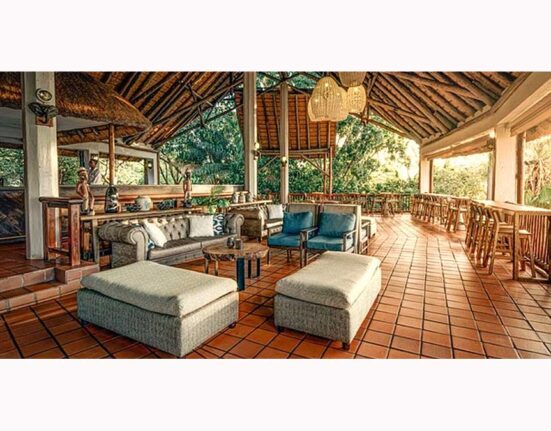Standard Bank, as the leading bank in Africa with on-the-ground presence across 20 countries, continues to support and drive sustainable growth on the continent by facilitating enhanced trade and investment opportunities.
The US-Africa Business Summit, which takes place between 11-14 July in Botswana, will provide exciting opportunities for Africa’s leading businesses to cement and open new ties with the world’s most powerful market.
“There is immense potential for stronger ties and greater mutual benefit between the world’s biggest economy and Africa. Achieving this will require greater levels of collaboration, access and participation, which is precisely why this summit will be so valuable,” says Sim Tshabalala, CEO, Standard Bank Group who will lead a delegation drawn from both the bank’s Africa and New York operations.
The Summit will bring together more than 1,000 US and African public and private sector participants, including African Heads of State, US and African Ministers and senior government officials, private sector executives and entrepreneurs, international investors, and multilateral stakeholders. Hosted by the Corporate Council on Africa (CCA), it will build on the momentum of the successful December 2022 U.S.- Africa Leaders Summit and Business Forum led by the Biden Administration, and where Standard Bank actively participated.
“African countries will benefit from expanding and diversifying their participation in international trade and global value chains. Achieving Africa’s development goals will require increasing Africa’s share of global trade,” says Mr Tshabalala.
According to the World Bank, African countries’ effective participation in the ever-evolving international trade environment remains central to boosting the continent’s ’s growth and development. While African exports of goods and services have seen their fastest growth in the past decade, the volumes remain low at just 3% of global trade.
“As the largest economy in the world, the US is an important driver of global trade and investment. Standard Bank has been committed, since the opening of our New York office in 1994, to promote Africa as an attractive investment market to American investors,” he adds.
This year’s Summit is appropriately themed “Enhancing Africa’s Value in Global Value Chains” and will explore a renewed commitment by both public and private sector stakeholders to building stronger US -Africa trade, investment, and commercial ties.
This comes as trade ties between the US and Africa continue to strengthen. Since 2021, the US government has helped close more than 800 two-way trade and investment deals across 47 African countries for a total estimated value of over $18 billion, and the U.S. private sector has closed investment deals in Africa valued at $8.6 billion. US goods and services traded with Africa totalled $83.6 billion in 2021.
In December last year, US President Biden announced over $15 billion in two-way trade and investment commitments, deals, and partnerships that advance key priorities, including sustainable energy, health systems, agribusiness, digital connectivity, infrastructure, and finance. Since January 2021, the Biden Administration has invested and plans to invest more than $1 billion in trade, investment, and economic development in Africa.
As the leading financial sector player in US-Africa trade corridor, Standard Bank is committed to building trusted and efficient domestic and regional value chains integrated into global supply ecosystems. It sees the continent as ripe for enhanced foreign investment.
“Standard Bank is optimistic about the success of the African single market (the African Continental Free Trade Area), especially if the private sector and government continue to work together to lower both tariff and non-tariff barriers to trade. Together we can play a greater role in supporting the long-term development of African economies,” says Mr Tshabalala.
Standard Bank is helping to build the finance and trade solutions that address these tariff and non-tariff barriers. The bank is also leading moves to manage and mitigate climate change by building sustainable solutions for Africa and to enable the continent to achieve the necessary just transition to a much less carbon-intensive economy.
“We are committed to supporting sustainable and inclusive growth and development across Africa. This year’s Summit offers a powerful opportunity for the continent’s leading voices to accelerate these moves,” concludes Mr Tshabalala.
The US has expressed its support for the African Continental Free Trade Area (AfCFTA), which once fully implemented, will be the world’s largest free trade area. A World Bank report has estimated that effective implementation of the AfCFTA has the potential to raise 30 million Africans out of severe poverty and increase the earnings of almost 68 million other people living on less than US$5.50 per day.








